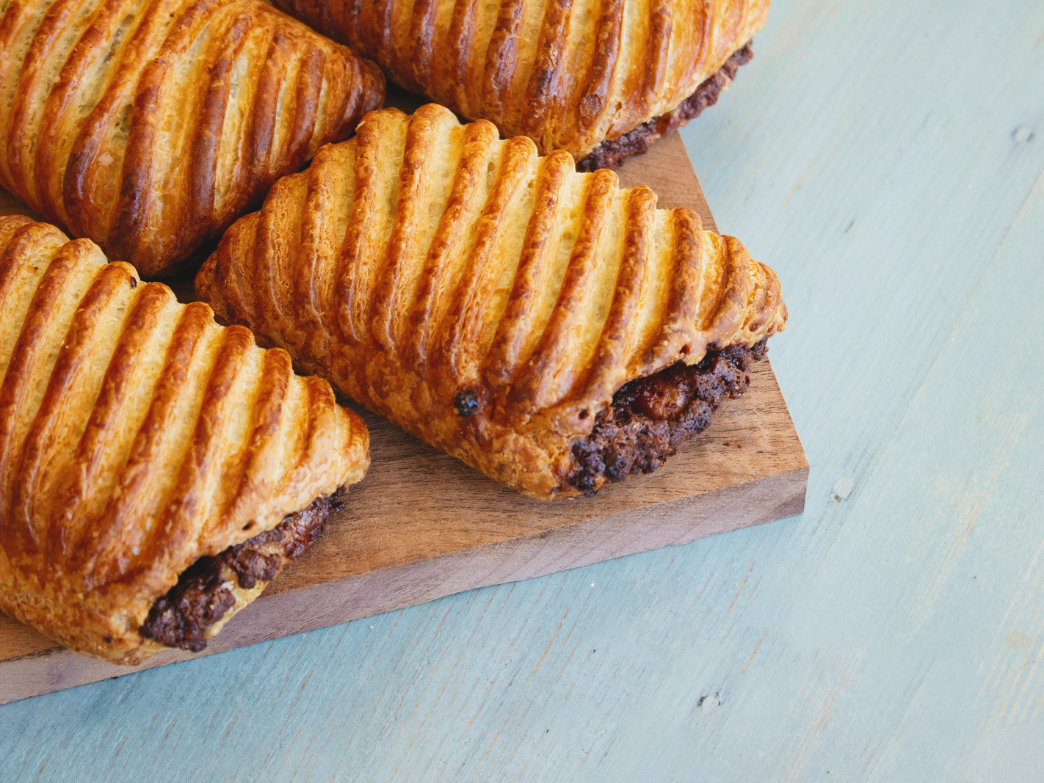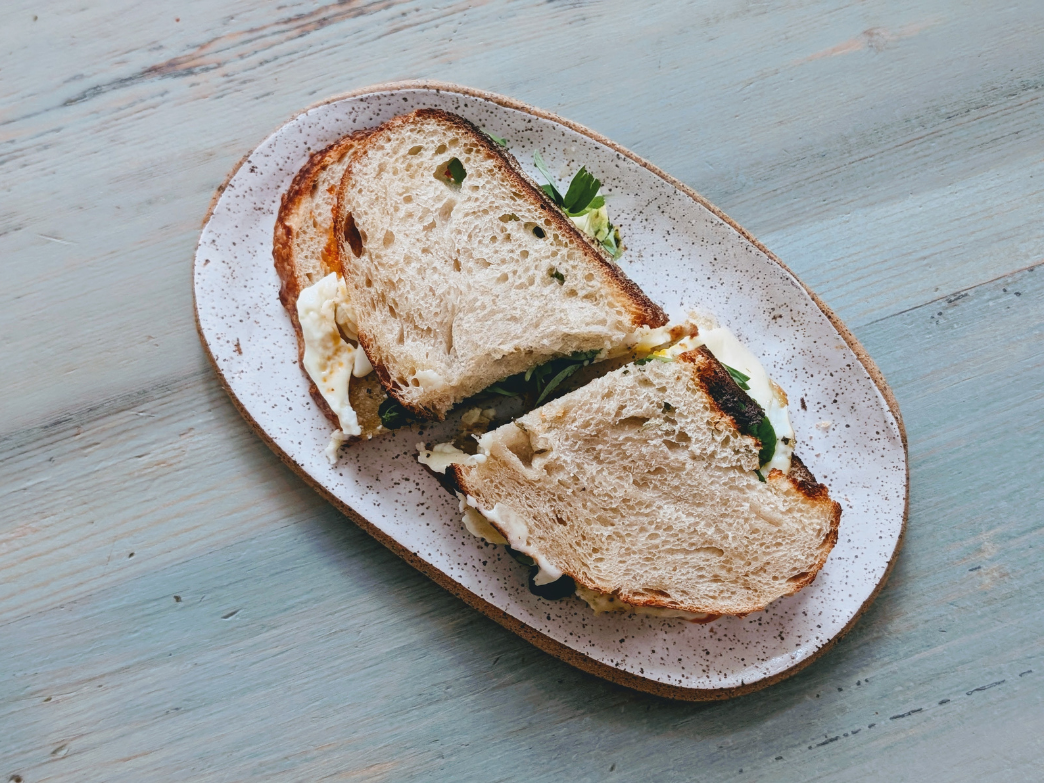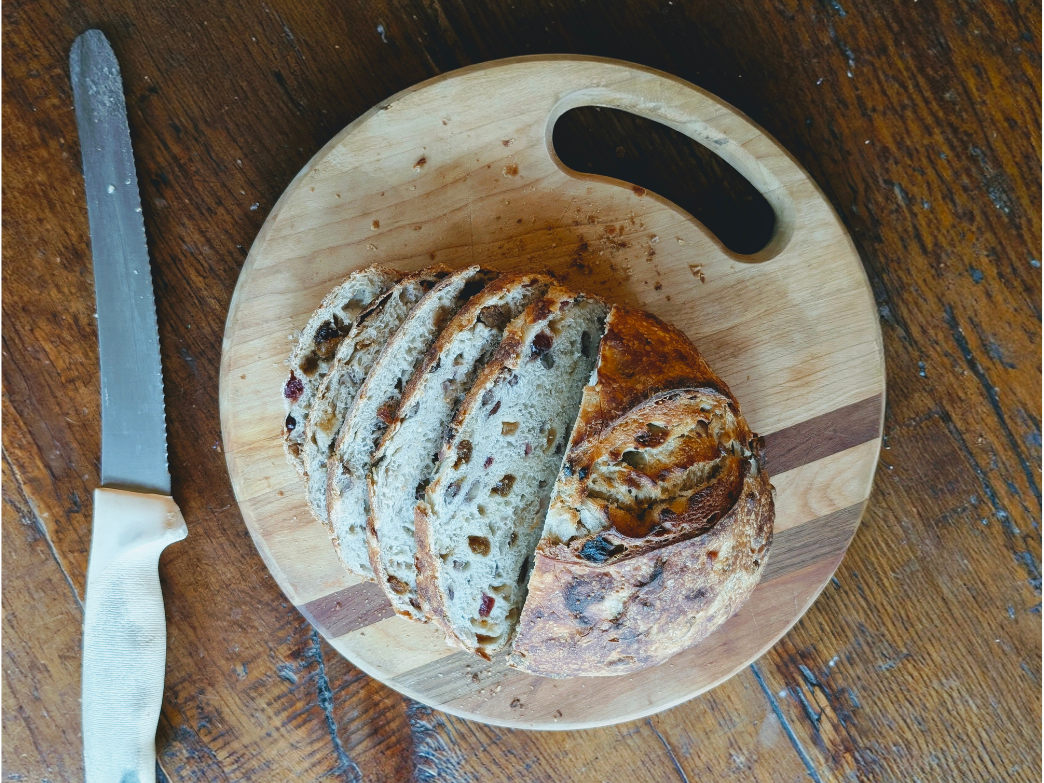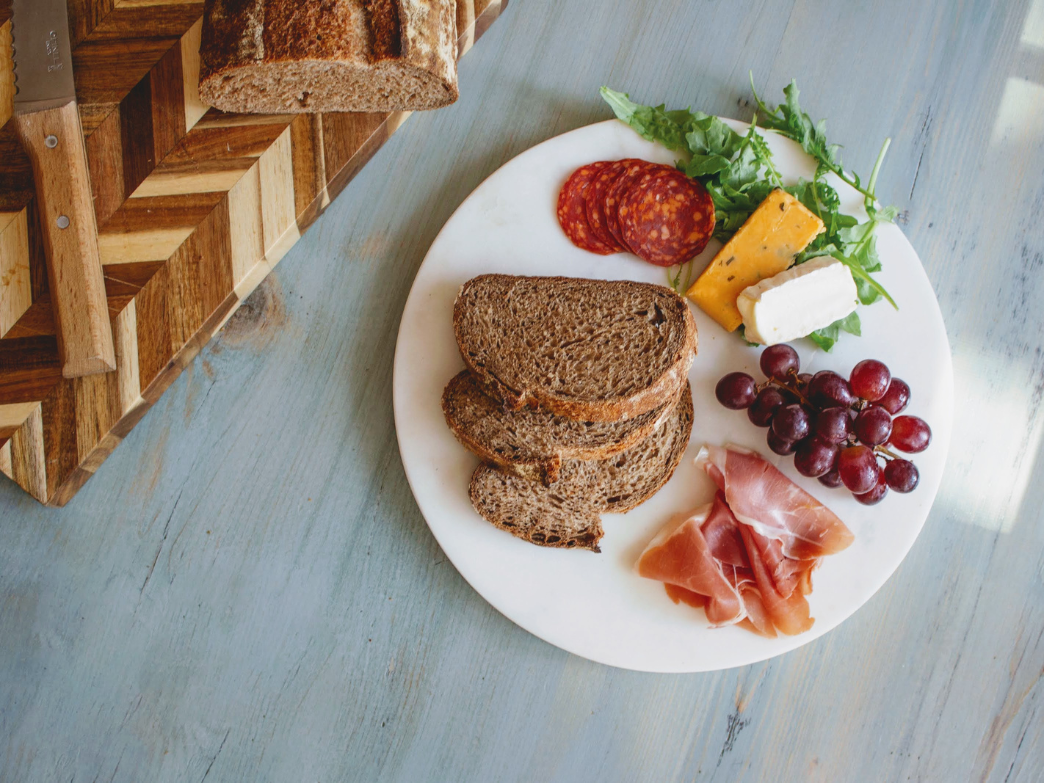By Dr. Jorge, Ph.D.
Wildgrain, opens in a new tab is the first bake-from-frozen subscription box for sourdough breads, fresh pastas, and artisanal pastries.
The flaky melt-in-your-mouth texture of a butter croissant is one that many know and love, but what about when you add in chocolate? Nobody can deny how much more delicious a croissant is with the addition of smooth and delectable chocolate. While chocolate croissants are a pastry that is a beloved treat for many, are they considered healthy? In this article, we’ll discuss the nutritional value of chocolate croissants and how you can enjoy them.
What is a chocolate croissant? What is a pain au chocolat?
A chocolate croissant uses the same dough as a classic croissant, except it is filled with chocolate and has a rectangular shape instead of a crescent shape. Pain au chocolat is the French name for chocolate croissants, literally meaning “bread with chocolate.” Chocolate croissant (pain au chocolat) is also similar to chocolatine, another chocolate French pastry that is made from a different dough.
Do you eat pain au chocolat hot or cold? Do you eat chocolate croissants warm?
You can enjoy chocolate croissants (or pain au chocolat) any way you’d like, but many suggest eating them warmed to slightly melt the chocolate on the inside, as the chocolate will harden when cooled. However, it is recommended to heat the chocolate croissant in the oven instead of the microwave. This is because the pastry can lose its crispiness if heated in the microwave. With Wildgrain Chocolate Avalanche Croissants, you can bake them in the oven from frozen and enjoy fresh, warm chocolate croissants!
What do you eat with pain au chocolat? What do you eat with chocolate croissants?
Chocolate croissants are delicious on their own, but you can also pair pain au chocolat with whatever you’d like. In France, it is common to enjoy chocolate croissants for breakfast with a cup of coffee or orange juice.
What are the nutrition facts for chocolate croissants? What are the nutrition facts for pain au chocolat?
Chocolate croissants are made using chocolate, flour, butter, water, eggs, yeast, sugar, milk, and salt. The exact nutritional profile of a chocolate croissant (pain au chocolat) will differ slightly depending on the bakery. For reference, our Chocolate Avalanche Croissant at Wildgrain (which has a lot of chocolate!) contains 460 calories, 25 grams of fat, 52 grams of carbohydrates, 25 grams of sugar, and 8 grams of protein per croissant.
Is chocolate croissant healthy? Is pain au chocolat healthy?
Chocolate croissants are not considered healthy on their own, since they are not deemed to be very nutritious. The large amount of butter used to make croissants mean they are high in calories and fat. The chocolate filling in pain au chocolat makes them high in sugar, as well. Despite their low nutritional value, you can still indulge in pain au chocolat in moderation as part of a healthy diet. To compare the nutritional benefits of regular croissants vs. chocolate croissants, please also check out our article on the health qualities of regular croissants.
Can you eat chocolate croissants for breakfast? Can you eat pain au chocolat for breakfast?
Yes, you can absolutely eat chocolate croissants (or pain au chocolat) for breakfast! In fact, this is the most common way that chocolate croissants are enjoyed in France.
Where can I buy the best chocolate croissants and pain au chocolat online?
At Wildgrain, we specialize in making high-quality, fresh breads that are delivered directly to your door. Wildgrain is the first bake-from-frozen delivery subscription service for breads, rolls, pastries, and fresh pastas. Some of our popular pastries include Chocolate Avalanche Croissants and traditional croissants. Learn more about Wildgrain and our artisanal baking and cooking methods.
About the Author



